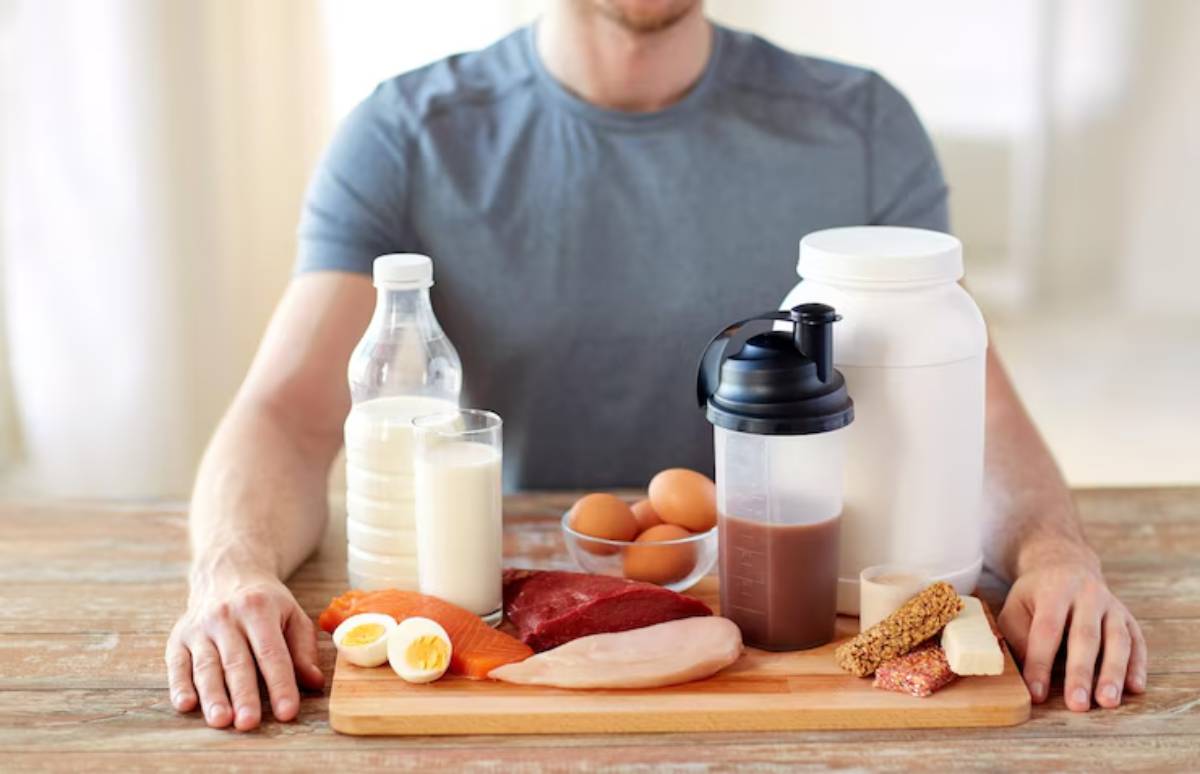
What to Eat Post-Workout for Faster Recovery
You’ve just finished a killer workout. Muscles shaking, heart pumping, sweat dripping — it’s the satisfying aftermath of a job well done. But what happens next can make or break your progress. While many focus on the workout itself, it’s what you eat afterwards that can truly determine how quickly and effectively your body recovers.
Post-workout nutrition isn’t just about refuelling—it’s about repairing muscle tissue, replenishing glycogen stores, and setting the stage for future performance. Whether your goal is to build muscle, improve endurance, or simply avoid walking like a penguin the next day, the right recovery meal plan matters.
This blog unpacks the science and practical application behind what to eat after training. You’ll learn why timing is important, which foods support muscle recovery best, and how to personalise your post-workout routine to meet your goals — all in a way that fits real life, not just the lab.
Why Post-Workout Nutrition Matters
When you exercise, particularly at moderate to high intensity, you’re not just burning energy — you’re creating micro-tears in your muscle fibres, using up stored glycogen (your body’s go-to fuel), and losing fluids and electrolytes through sweat.
Without proper recovery nutrition, you’re left with:
- Delayed muscle repair
- Increased soreness (DOMS)
- Compromised immune response
- Poor performance in future workouts
But with the right approach, you can accelerate muscle repair, reduce inflammation, and set yourself up for consistent progress.
The Post-Workout Nutrition Window: Does Timing Really Matter?
There’s a long-standing belief in the “anabolic window”—the idea that you must eat within 30 minutes of training to reap benefits. While newer research has shown that this window may be broader than once thought, timing still plays a role, especially for active individuals who train frequently.
So, what’s the sweet spot?
- Within 1 hour post-exercise is ideal for most people
- Within 30 minutes, if you’re training again soon or have specific muscle-building goals
This is when your muscles are most receptive to nutrients, and replenishing glycogen quickly can reduce fatigue and soreness.
What Your Body Needs After a Workout
To optimise recovery, your body craves a specific blend of macronutrients:

1. Protein — The Building Block
Your muscles need amino acids from protein to repair damaged fibres and build new tissue.
Aim for:
- 20–40g of high-quality protein, depending on your size and training load
- Sources with complete amino acid profiles, such as whey, eggs, lean meat, tofu, or dairy
Whey protein, in particular, is fast-digesting and rich in leucine, a key amino acid for muscle protein synthesis.
2. Carbohydrates — The Refueler
Carbs are essential to replenish glycogen, especially after high-intensity or long-duration workouts.
- Pair protein with 30–60g of carbs post-workout
- Choose simple carbs for quicker absorption — think rice, fruit, oats, or sweet potato
Carbs also help stimulate insulin, which plays a role in shuttling nutrients into cells for recovery.
3. Fats — The Controversial Companion
Fats were once thought to slow digestion and blunt the anabolic response. However, moderate amounts of healthy fat don’t hinder recovery and can support hormonal balance and inflammation control.
- Stick to small portions of healthy fats like avocado, olive oil, or nuts
- Avoid heavy, greasy meals that might slow absorption
Best Muscle Recovery Foods (With Real-World Examples)
You don’t need fancy supplements or exotic powders. Whole foods often do the job better, and they taste a lot better, too.
Protein-Rich Options
- Grilled chicken or turkey breast
- Salmon or tuna
- Greek yoghurt or cottage cheese
- Tofu, tempeh, or edamame
- Eggs and egg whites
- Protein shakes (whey or plant-based)
Carbohydrate-Rich Options
- Rice or quinoa
- Oats or whole-grain bread
- Potatoes or sweet potatoes
- Fruit (bananas, berries, apples, oranges)
- Smoothies with fruit and yoghurt
Healthy Fats (in moderation)
- Nut butters
- Avocados
- Chia or flax seeds
- A drizzle of extra virgin olive oil
Sample Recovery Meal Plans
Whether you’re training in the morning or evening, here are some simple combinations to cover all your bases:
Post-Morning Workout
- Scrambled eggs on wholegrain toast with sliced avocado and fruit
- Protein smoothie with banana, berries, oats, and almond milk
- Greek yoghurt parfait with granola and honey
Post-Afternoon Workout
- Grilled chicken with quinoa, roasted veggies, and tahini dressing
- Tuna sandwich on wholegrain bread with a side of fruit
- Tofu stir-fry with rice noodles and mixed greens
Post-Evening Workout
- Cottage cheese with pineapple and almonds
- Hard-boiled eggs with hummus and wholegrain crackers
- Protein shake with a banana and peanut butter
Do you need to stay light but effective? A balanced post-workout recovery meal plan tailored to your goals can help you make sustainable choices long-term.

Hydration: The Often-Overlooked Key
Food isn’t the only thing your body’s after post-exercise — fluid balance is critical, especially after sweat-heavy sessions.
Tips for Smart Rehydration:
- Drink 500ml–750ml of water within the first hour after training
- Add electrolytes (like sodium, potassium, and magnesium) if the workout was over an hour or in hot weather
- Coconut water, electrolyte tabs, or sports drinks can work, but watch out for added sugars
Rehydration helps prevent cramps, headaches, and fatigue and supports cellular recovery.
Do You Need Supplements?
Supplements can help in a pinch — but they’re just that:supplements, not substitutes.
Consider these if needed:
- Whey or plant-based protein powders for convenience
- Creatine to support strength and recovery (3–5g daily)
- Branched-chain amino acids (BCAAs), if you train fasted or multiple times per day
- Electrolyte tablets for hot-weather or endurance sessions
Remember, whole food > powder, whenever possible. Supplements are useful, but not essential for most people.
Tailoring Recovery for Your Goals
Your post-workout nutrition may shift slightly depending on your fitness goals.
For Muscle Gain (Hypertrophy):
- Prioritise both protein and carbs post-training
- Ensure overall calorie surplus
- Use a protein timing strategy across the day for sustained growth
For Fat Loss:
- Keep carbs moderate but don’t skip them entirely — they aid recovery
- Focus on lean protein and veggies
- Avoid sugary recovery snacks disguised as “healthy”
For Endurance:
- Focus on higher carb intake post-exercise to replenish energy stores
- Include sodium or electrolyte replacements
- Pair with moderate protein to reduce muscle breakdown
The Role of Anti-Inflammatory Foods
Inflammation is a natural part of recovery, but excessive inflammation can delay healing. Including anti-inflammatory foods in your recovery routine can help balance the response.
Top Picks:
- Turmeric and ginger: Add to smoothies or meals
- Berries: High in antioxidants and polyphenols
- Leafy greens: Spinach, kale, rocket
- Fatty fish: Rich in omega-3s (salmon, mackerel)
- Green tea: A light caffeine boost with anti-inflammatory effects
These foods not only aid muscle recovery but also support your immune system and long-term health.
Real-World Scenarios: Making It Work for You
Let’s say you hit a spin class at lunch but have a back-to-back meeting afterwards. You don’t have time for a full meal, but you still need to recover.
Smart option: a shake with protein powder, banana, and nut butter—quick, portable, and hits the macronutrient targets.
Or maybe you lift in the evening but struggle to eat a full dinner afterwards. A bowl of oats with Greek yoghurt, berries, and a spoonful of peanut butter is easy on digestion yet packed with recovery power.
The point? Recovery doesn’t have to be complicated — just consistent.
Conclusion: Fuel Your Recovery, Fuel Your Progress
Recovery isn’t just a passive process. It’s an active investment in your strength, stamina, and resilience. What you put into your body after a workout influences not only how you feel the next day but also how quickly you adapt and improve over time.
Prioritise protein and carbs, stay hydrated, and build recovery meals that suit your schedule and training goals. The best approach is realistic, repeatable, and nourishing for both your muscles and your mindset.
Train hard, recover smarter — and let your meals work just as hard as your workouts.


